What ‘tsarist’ weapons did the Red Army use in WWII?
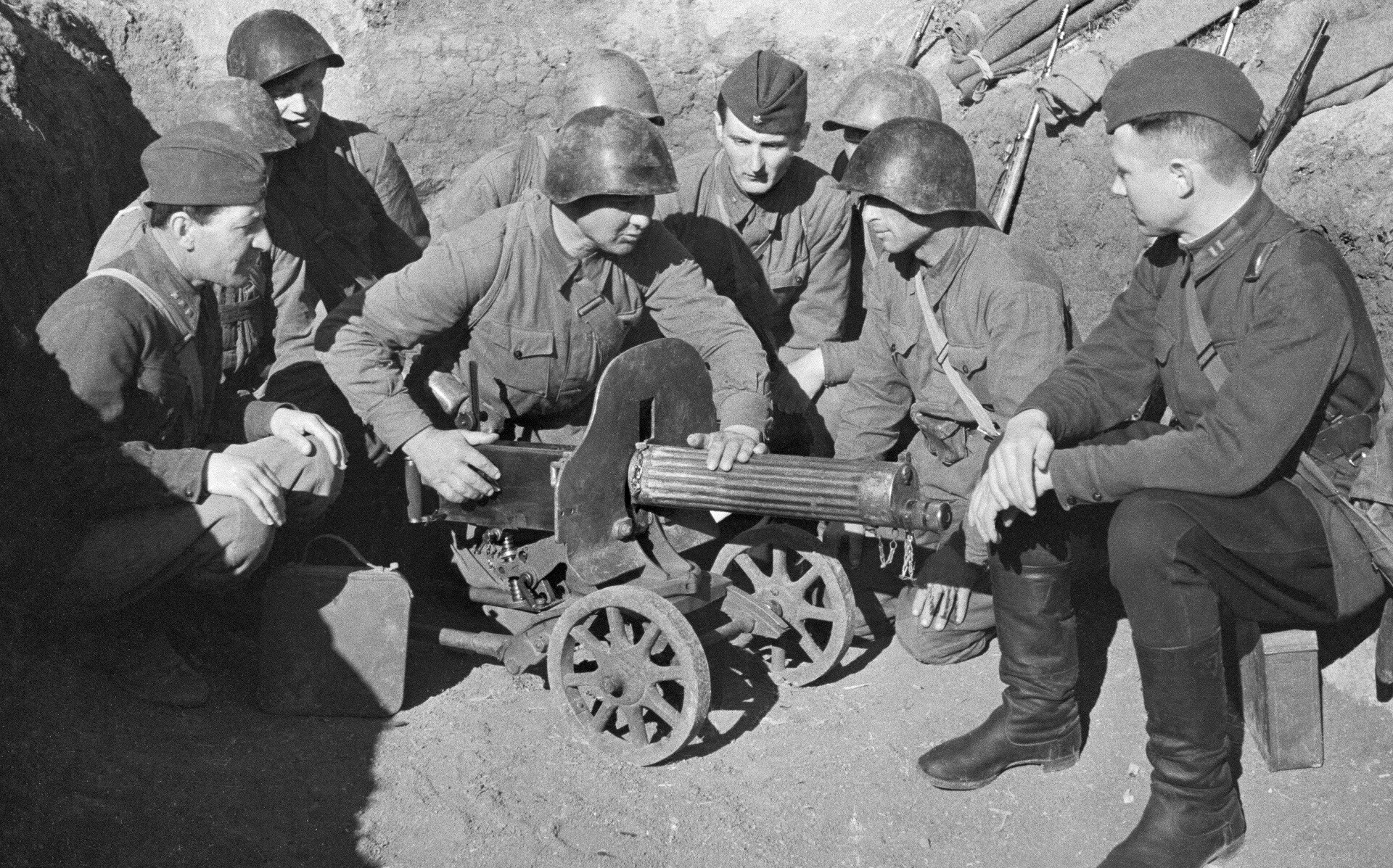
Mosin 3-line rifle
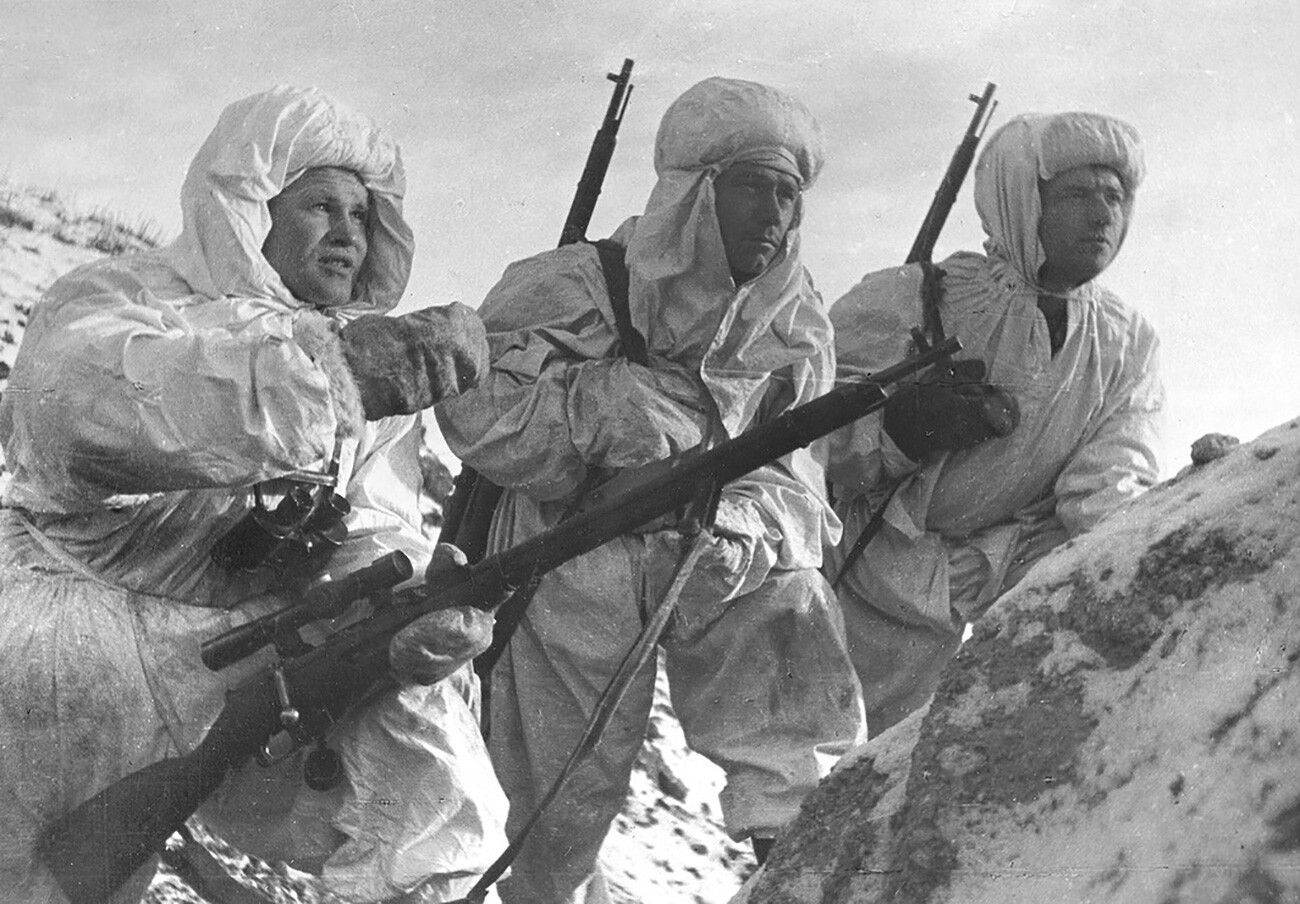 Sniper Vasily Zaitsev (L) in Stalingrad.
Sniper Vasily Zaitsev (L) in Stalingrad.
The powerful, reliable and unpretentious 7.62-mm rifle was developed by designer Sergei Mosin in the late 19th century, but, even in World War II, it was still the main small arms of the Soviet infantry. The 1932 sniper version of this rifle is considered to have been extremely successful.
‘Maxim’ machine gun
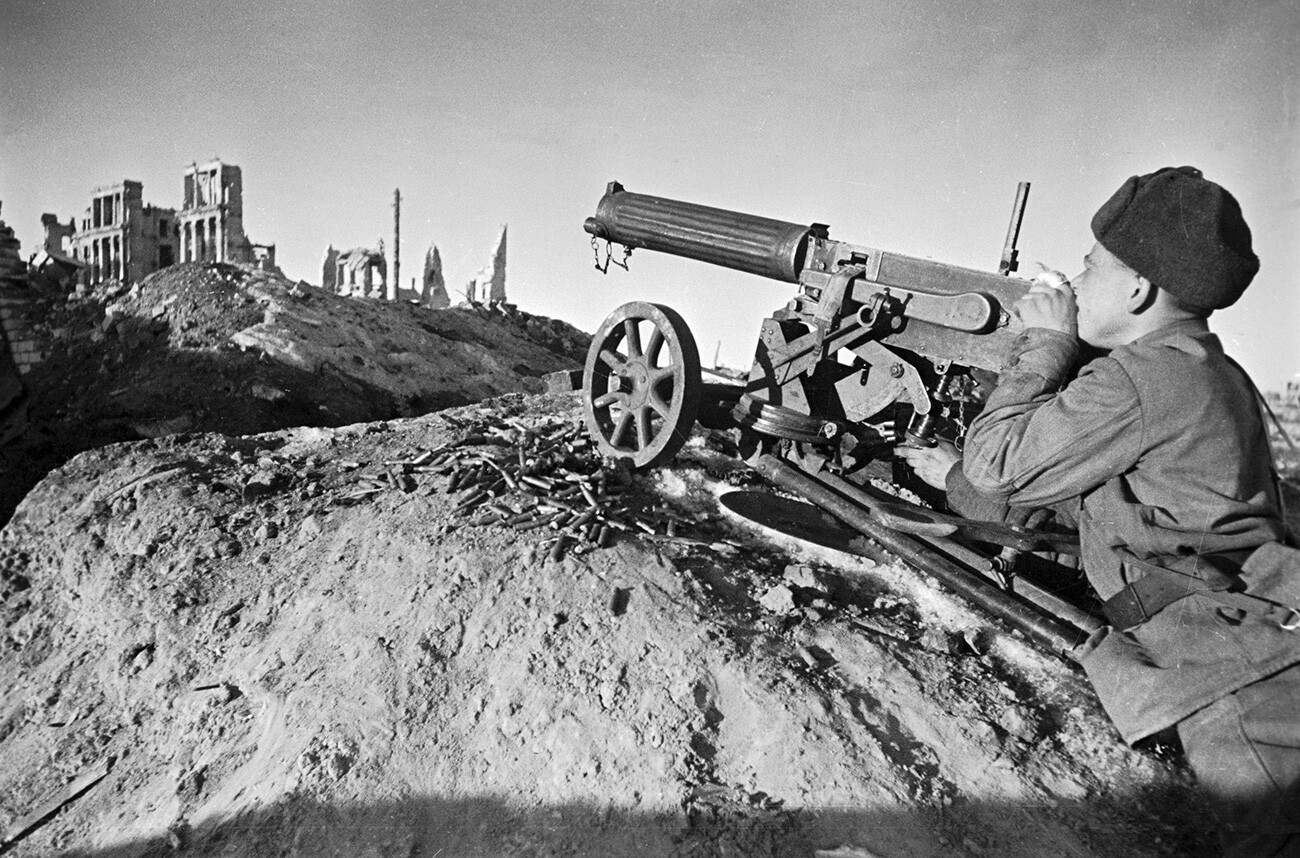 A Soviet soldier with a ‘Maxim’ machine gun in Stalingrad.
A Soviet soldier with a ‘Maxim’ machine gun in Stalingrad.
By 1941, the British ‘Maxim’ machine gun was considerably outdated. Nevertheless, Soviet troops used it effectively during the first, defensive phase of the war against Nazi Germany. Beginning in 1943, the ‘Maxim’ began to be supplanted by the more modern ‘Goryunov’ machine guns (SG-43).
‘Nagant’ revolver
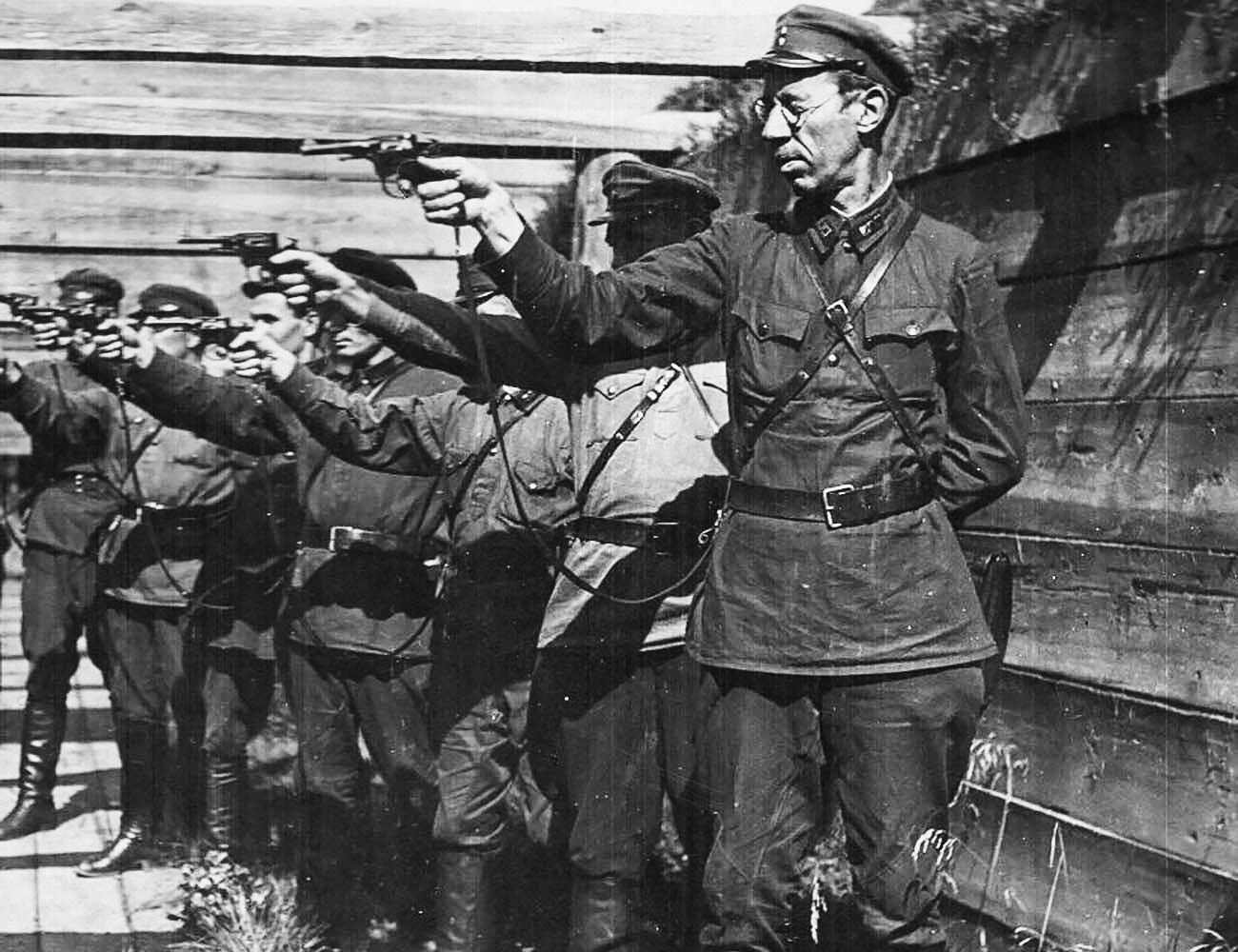 Soviet officers armed with 'Nagant' revolvers.
Soviet officers armed with 'Nagant' revolvers.
The Belgian 7.62mm ‘Nagant’ revolver of 1895 became one of the main symbols of the October Revolution and the Russian Civil War. During World War II, despite competition from the more modern ‘TT’ pistol, it was often the main weapon of Soviet commanders, who valued it for its reliability.
French ‘Schneider’ artillery guns
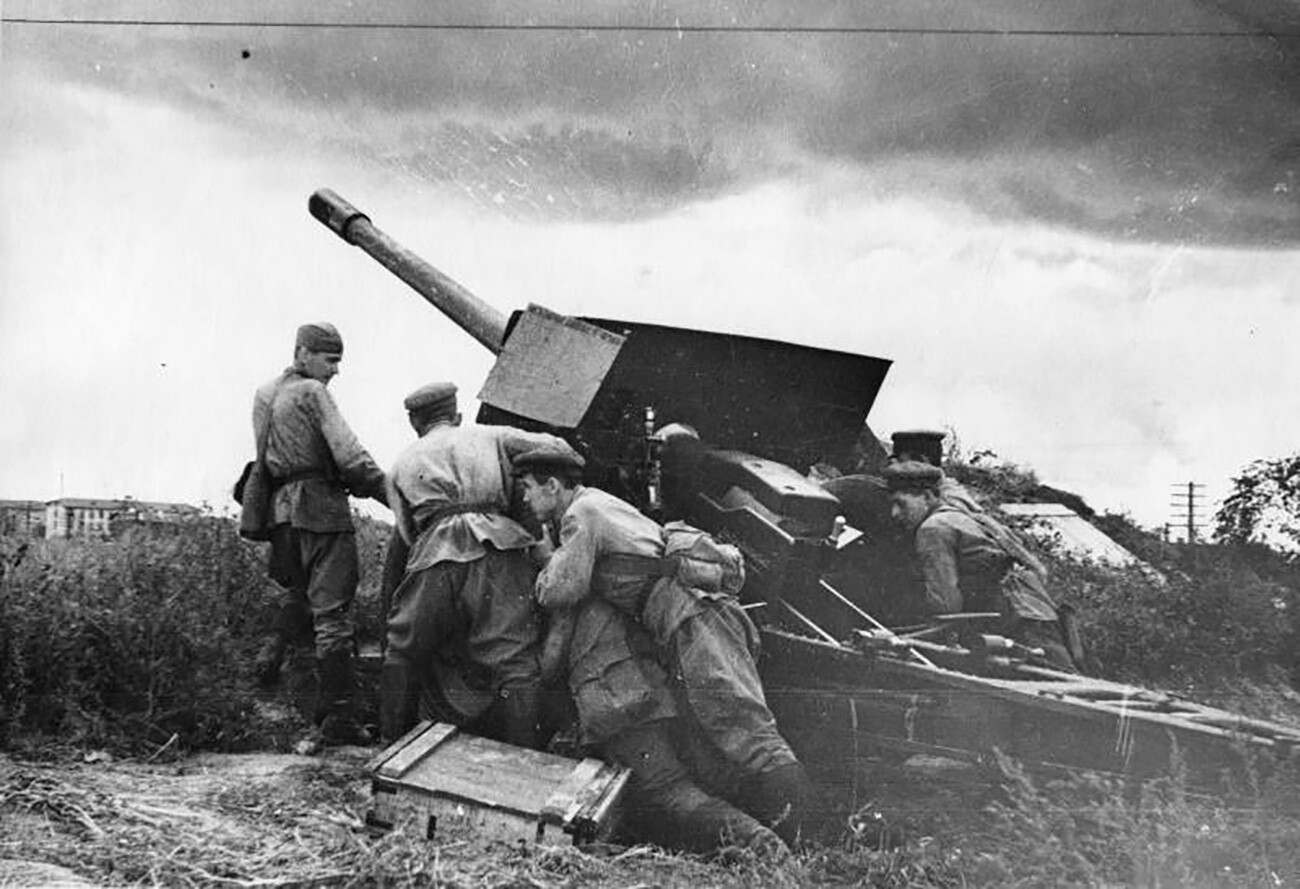 Soviet artillerymen with a 107 mm gun M1910/30.
Soviet artillerymen with a 107 mm gun M1910/30.
A shortage of modern artillery guns in the 1930s forced the Soviet military industry to modernize World War I guns, particularly those produced by the French ‘Schneider’ Company. The six-inch fortress howitzer, the 42-line field heavy gun and a number of others were modernized, received Soviet designations and were put into mass production.
‘Sevastopol’-class battleships
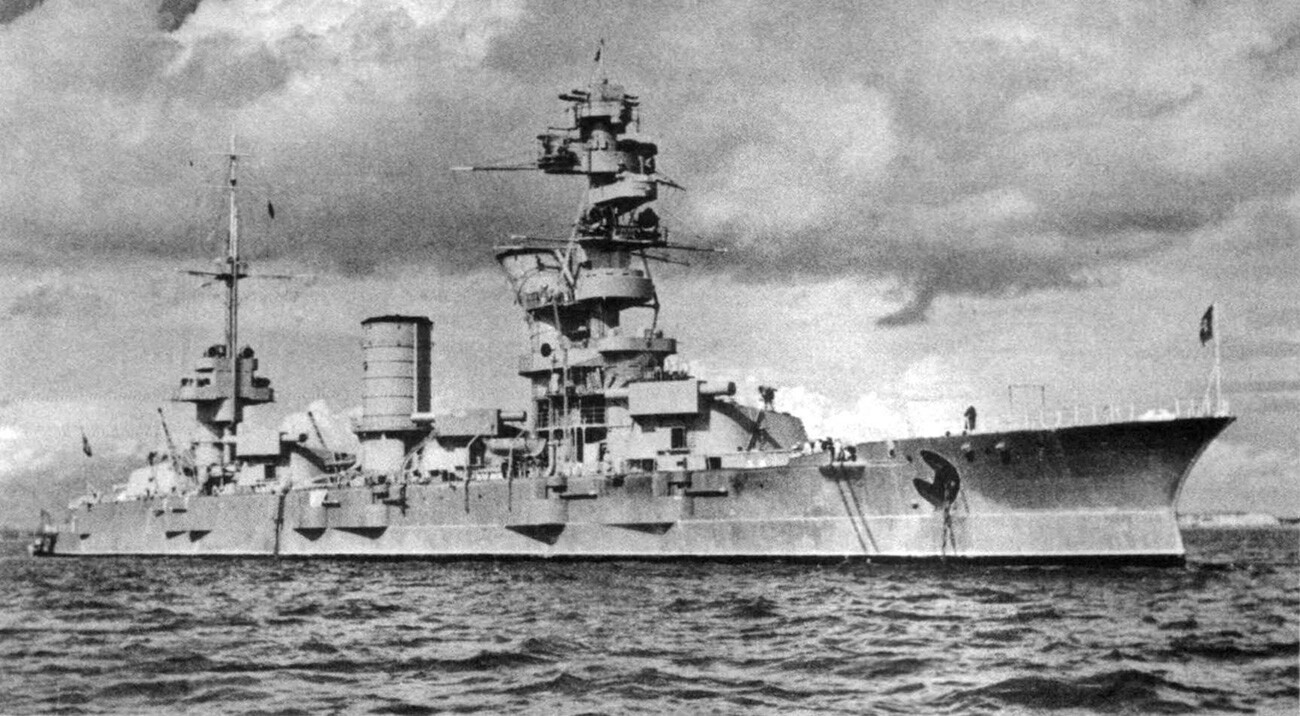 Soviet battleship 'Marat', 1939.
Soviet battleship 'Marat', 1939.
Four ‘Sevastopol’-class battleships of the Russian Imperial Navy underwent restoration and modernization during the Soviet era and also received new names. ‘Poltava’ became ‘Mikhail Frunze’, ‘Petropavlovsk’ became ‘Marat’, ‘Gangut’ became ‘October Revolution’ and ‘Sevastopol’ became ‘Paris Commune’ (in 1943, the original name was restored). The battleships participated in the defense of Crimea and Leningrad, as well as in the support of the Soviet offensive on the Karelian Isthmus.
‘Novik’-class destroyers
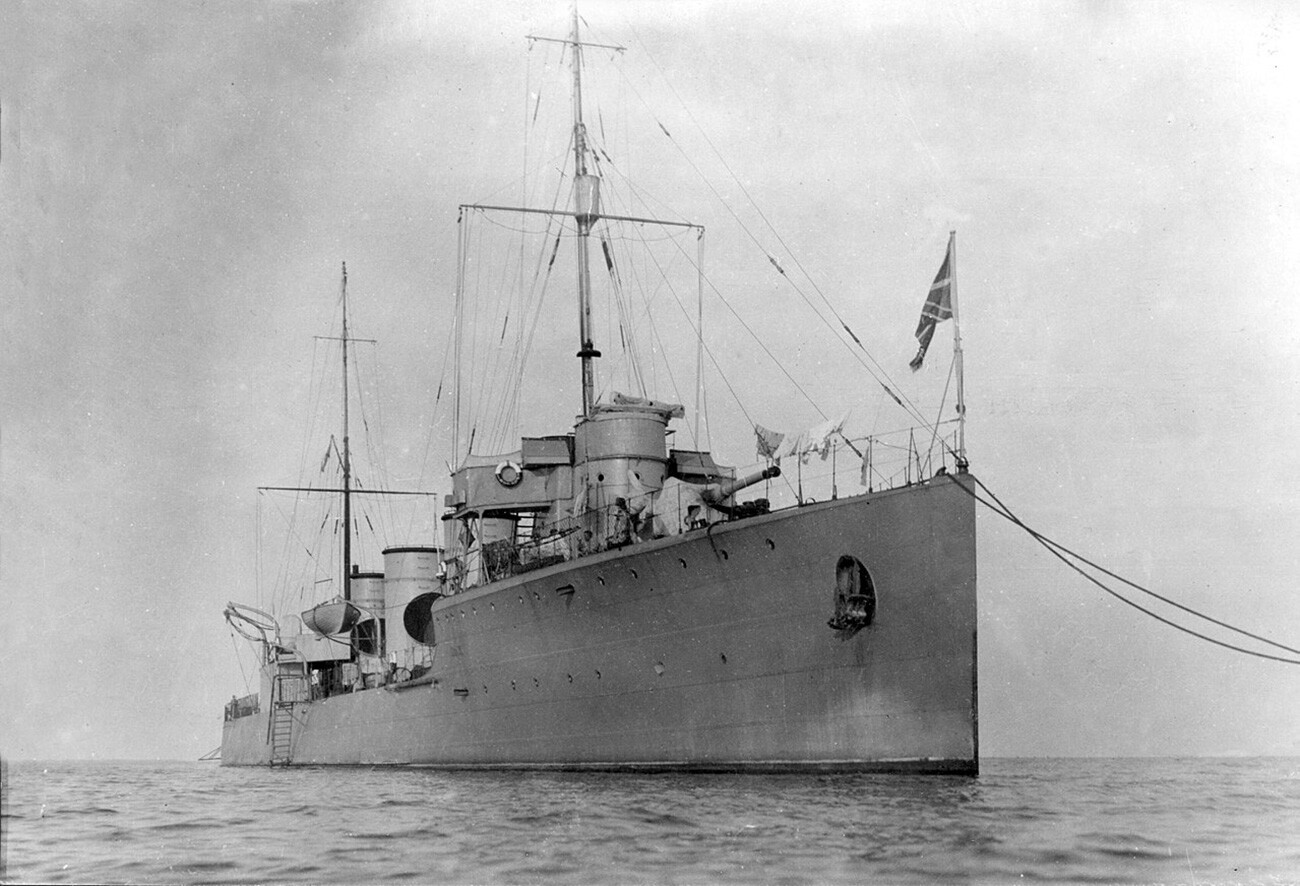 ‘Novik’ destroyer.
‘Novik’ destroyer.
A number of ‘Novik’-class destroyers of the Russian Empire were modernized in the USSR and received new names. During World War II, they participated in the battles for Crimea, the Caucasus and the Baltic. Four destroyers sank sank simultaneously during the so-called ‘Russian Dunkirk’ on August 27-28, 1941, the breakthrough of the Baltic Fleet from Estonia to Kronstadt.
'Bayonet'-class messenger vessels
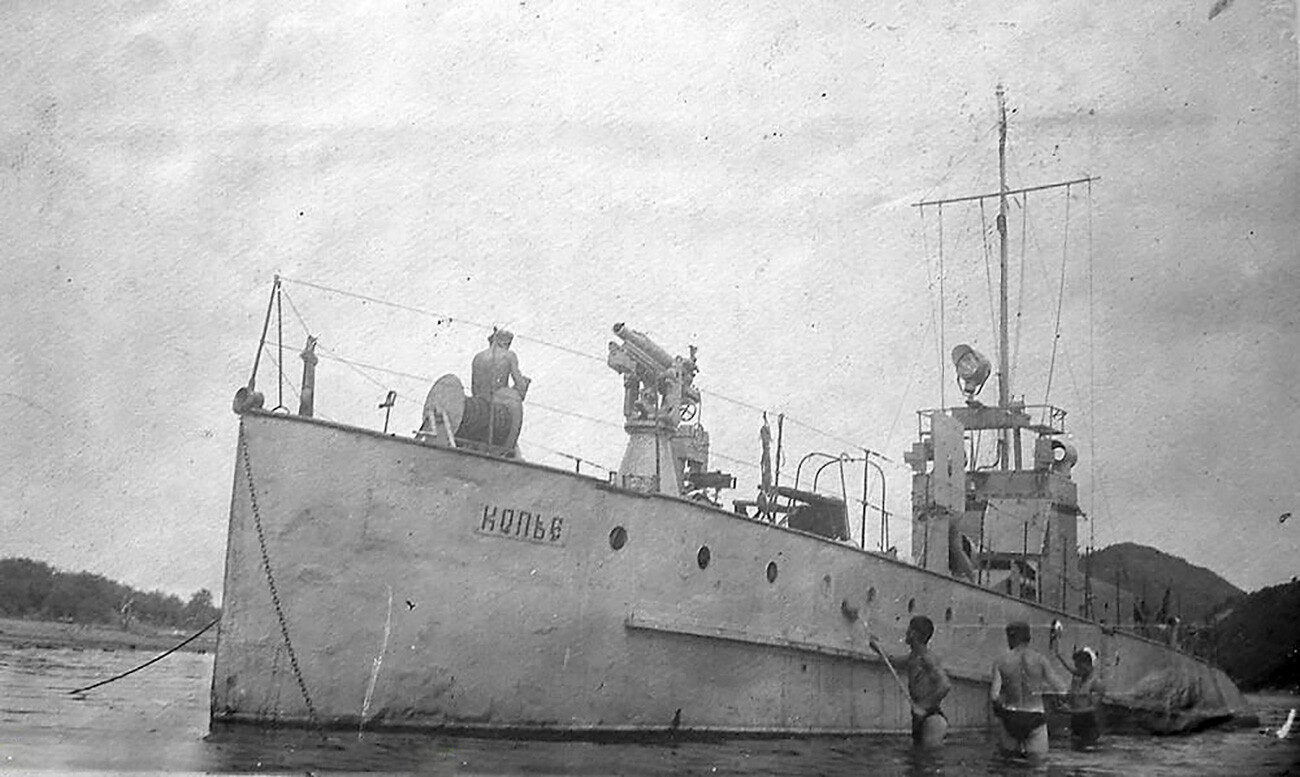 ‘Spear’ armored boat.
‘Spear’ armored boat.
Launched in 1910, the 'Bayonet'-class messenger vessels (used for communication and reconnaissance) ‘Spear’ and ‘Pika’ joined the Amur Military Flotilla. Under Soviet rule, they were reclassified as armored boats and continued their service in the Far East, taking part in the war against Japan in August 1945.

